DISPATCHES
August 2024
Hi Guys,Well Guys, July is over but before I get to August, I would like to thank all of our great K&C Dealers & Collectors down under in Australia who made my most recent trip to this wonderful land so much fun and informative in so many ways…
In each of the four cities, Brisbane, Sydney, Adelaide and Melbourne I met and talked with so many guys (and a few ladies) who have had a direct and positive creative influence on what we have produced in the past as well as what K&C is making now and planning to produce in the next year or so.
These face-to-face gatherings in Australia as well as other meetings in the U.S., around Asia and in Europe really do make a difference to what King & Country releases every single month, come rain or shine, year after year.
At the same time, the personal friendships and business relationships that are forged and maintained strengthen my own intention to continue to build and develop K&C’s unique position in this amazing little hobby and business which brings so much pleasure and enjoyment to so many people all over the world.
And so without further ado… Let’s see what’s coming this month…

1. BEING RELEASED THIS AUGUST…
A. … Enter The Afrika Kamel Korps!
Many years ago I came across a photo of two young Afrika Korps soldiers perched on top of a pair of camels somewhere in North Africa in the summer of 1941 not long after Rommel and his Deutsches AfrikaKorps expeditionary force arrived to shore up Mussolini’s forces which had just been routed by British and Empire troops there.At the time, K&C was busy producing a lot of other AK figures and fighting vehicles so I put this little snapshot from history into the file marked ‘Interesting and Unusual Ideas’ and returned to the work at hand.
Jump forward some years later and K&C was once more exploring the hot, blistering sands of North Africa and producing a whole new range of Afrika Korps figures and planning for the future release of no less than two all-metal ‘Tigers’!
As a stark contrast to these mighty 54 ton metal monsters why not introduce a much older form of military transport in the shape of a trio of camel-mounted AK soldiers patrolling the perimeter of their camp or perhaps visiting a local village…
.jpg)
| AK144 “AK Kamel Patrol Soldaten #1” This trooper looks relaxed and confident as he sits atop the standing camel surveying the desert scene around him. |
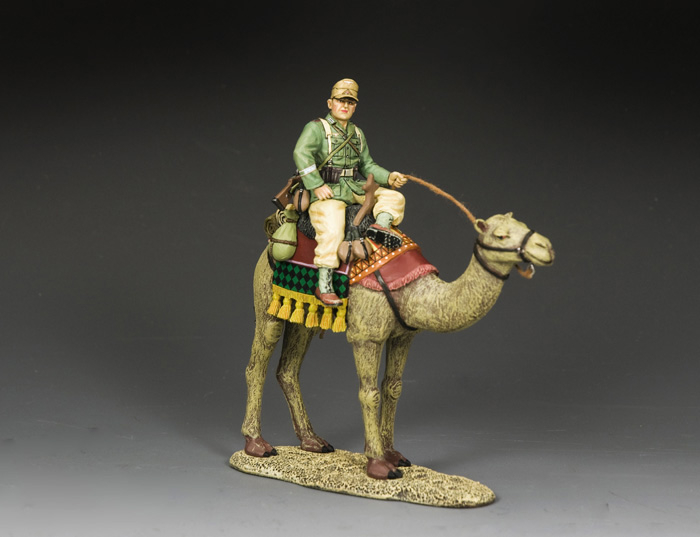 |
| AK145 “AK Kamel Patrol Soldaten #2” This second soldier is a little more wary of his camel or maybe it’s some of the local Arabs watching him with suspicion. Anyway, he’s taking no chances and has unslung his K98 rifle just in case… |
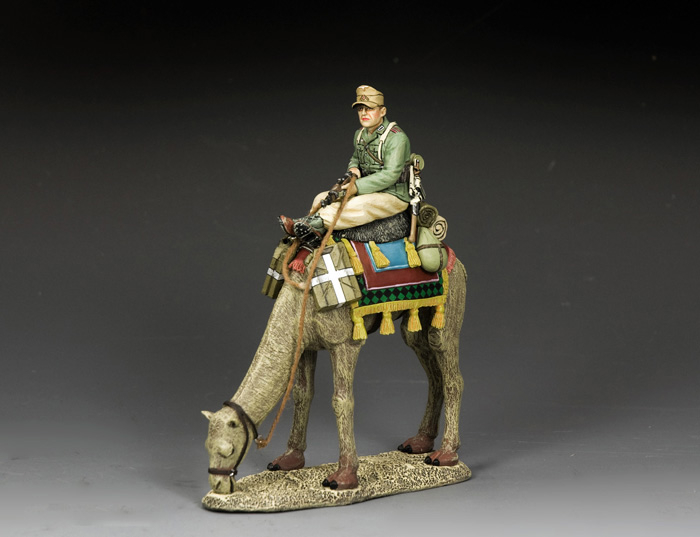 |
| AK146 “AK Kamel Patrol Soldaten #3” This third Afrika Korps soldier is also on the alert as he holds his rifle in one hand while keeping a firm grip on his camel’s reins. |
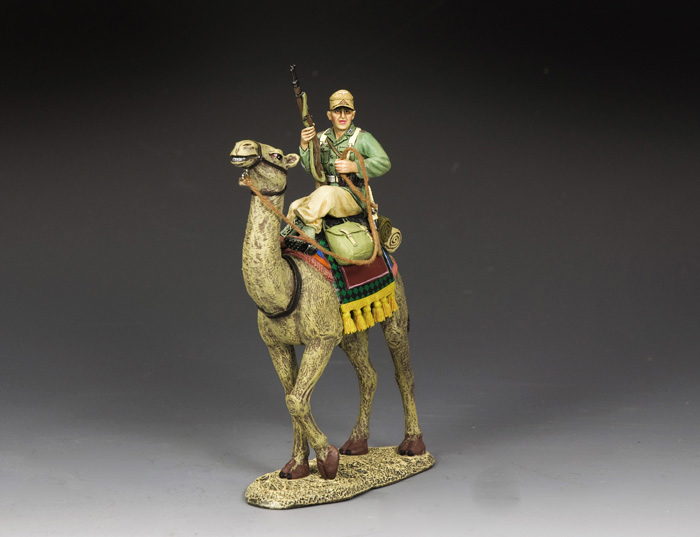 |
Observing this trio of novice camel riders are a pair of native inhabitants who have more than a passing interest in the animals.
| AK148 “The Camel Herder” This standing figure is in charge of the welfare and feeding of the camels and has also instructed these German soldiers in some very basic rudimentary camel-riding skills. As the Kamel Patrol pass by he watches them with a trained eye. |
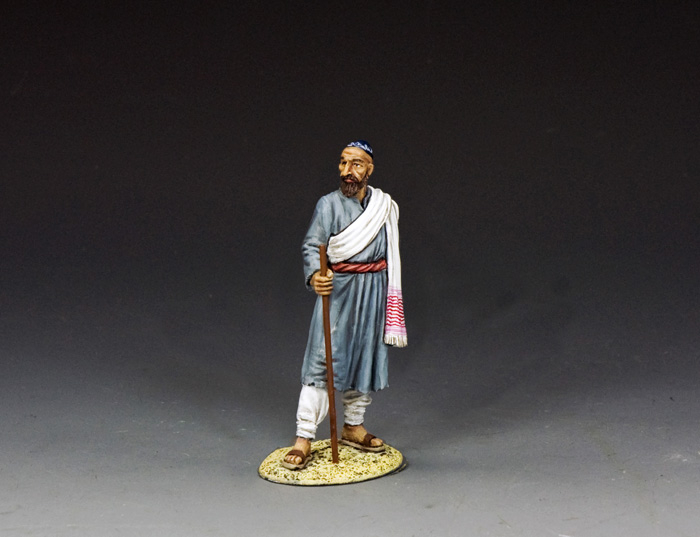 |
| AK149 “The Camel Owner” Also watching the patrol is the owner of the three animals the Germans are riding. In the past, before the war, he would only hire his camels out to rich foreign tourists who would pay well for the novel if uncomfortable experience of riding a ‘ship-of-the-desert’. These new ‘tourists’ from the Third Reich do not pay so well and refused to bargain and carried rifles to emphasize their point of view. No wonder that he has a worried expression. |
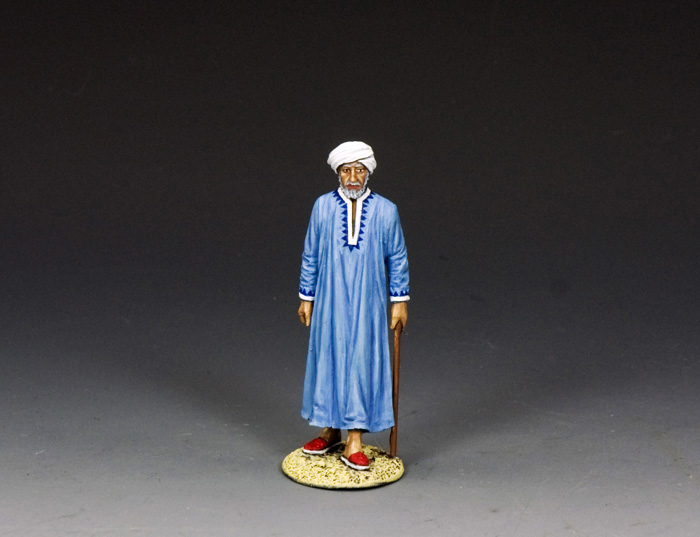 |
AVAILABLE: Early August
B.‘Medieval Archery’
Although archery was probably developed in Africa by the late Stone Age it took a long time to be introduced into Europe and an even longer time to be a central part of waging war on the continent.By the start of the early medieval period, Shortbows were used for both hunting and warfare. With a range of about 100 yards a shortbow had the ability to kill or injure an unarmoured man at close range but was often ineffective against armour.
Vikings however made extensive use of shortbows both at sea and on land.
By the time of the Battle of Hastings in 1066 both armies used archers and a Norman bowman was said to have struck down the Saxon King Harold.
Archers remained active on virtually all battlefields in early Middle Age Europe and were usually unarmoured except for some who had metal helmets. In addition, most were peasants or townsmen rather than knights or men-at-arms.
Beginning in the late 12th Century and into the 13th Century the ‘Longbow’ finally began to appear in the hands of more and more peasants or ‘yeomen’. This new development had a much longer range and greater penetration power than earlier ‘Shortbow’ and required considerably more skill and strength.
Its lack of accuracy at longer ranges meant that its best use on the battlefield was as a weapon of mass destruction when hundreds of arrows would descend from above onto the packed ranks of standing foot soldiers or the long lines of advancing cavalry.
Nowhere was that success better shown than the two victories of the English at Crecy in 1346 and Agincourt in 1415.

| MK232 “English Archer Taking Aim” Taking careful aim this archer has already picked out his enemy target less than 100 yards away. |
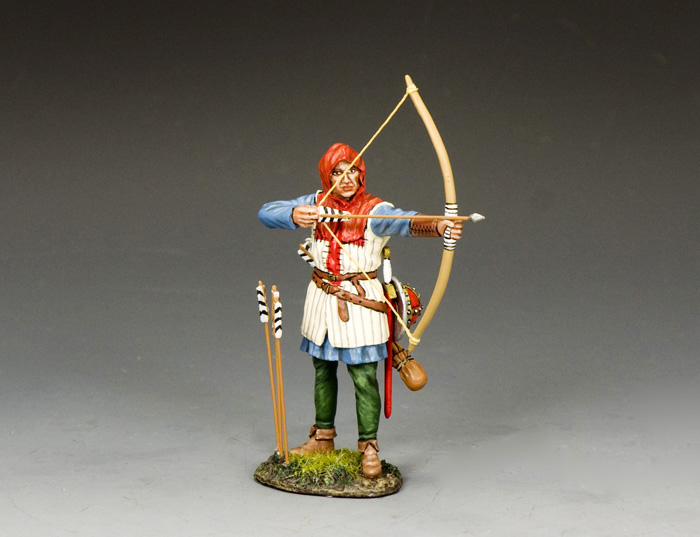 |
| MK233 “English Archer Letting Loose” Having fired his arrow and watching the result, this yeoman archer will select his next arrow from those set before him. |
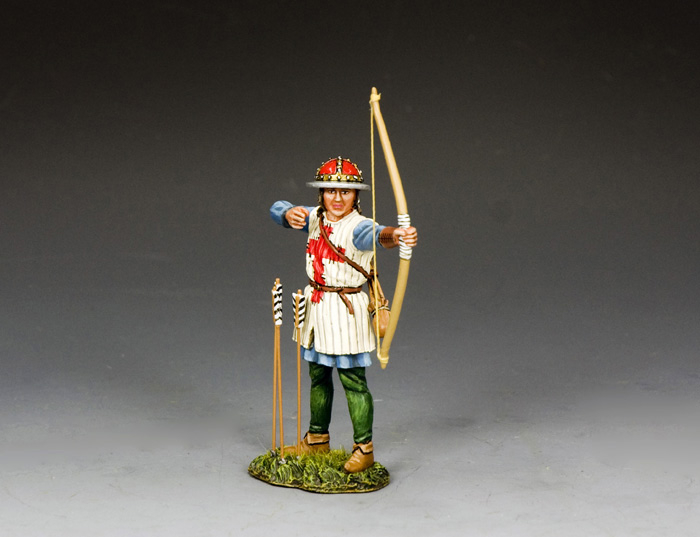 |
| MK234 “English Archer Firing Upwards” This archer will be one of many others firing upwards to bring down a hail of arrows on an unsuspecting foes making their way forward to meet their enemies. |
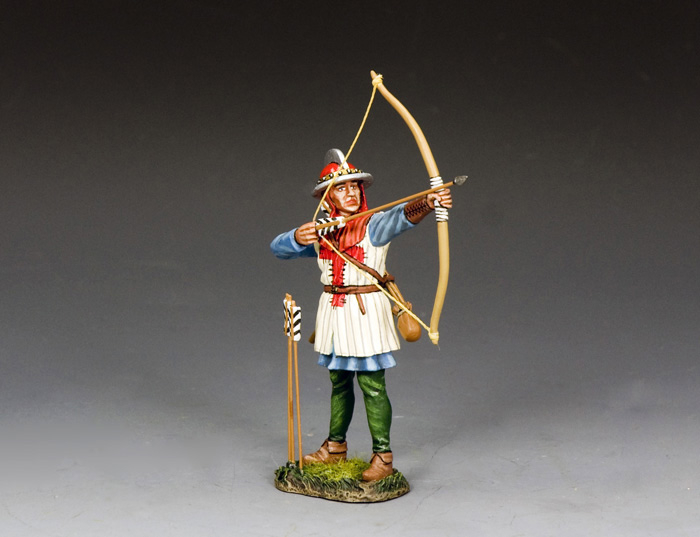 |
| MK235 “English Archer Kneeling Ready” Looking towards the enemy and holding the shaft of an arrow and his bow this kneeling archer prepares to stand up and fire. |
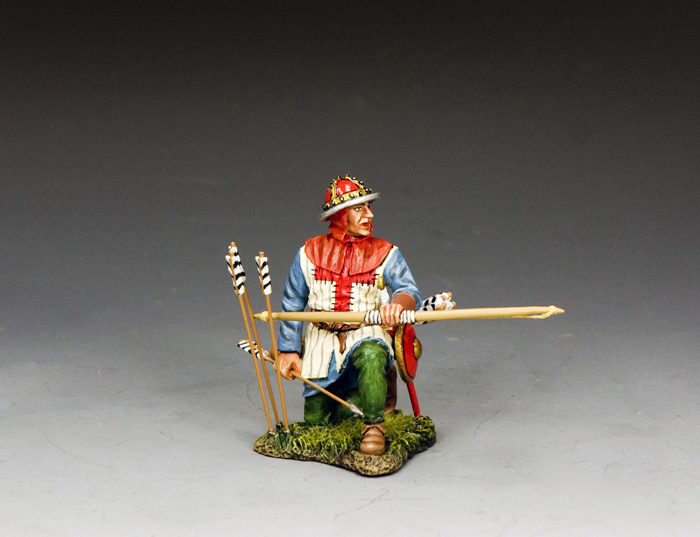 |
| MK236 “English Archer Stringing His Longbow” Traditionally English ‘Longbows’ were made from the ‘Yew’ tree because of its high compressive strength, light weight and… elasticity. In the Middle Ages the vast majority of English archers preferred using a string made up of linen and hemp which they would ‘string’ their bow with just before the battle. Our archer is stressing his Longbow between his right leg and left inside foot as he completes the task of ‘stringing’ his bow. |
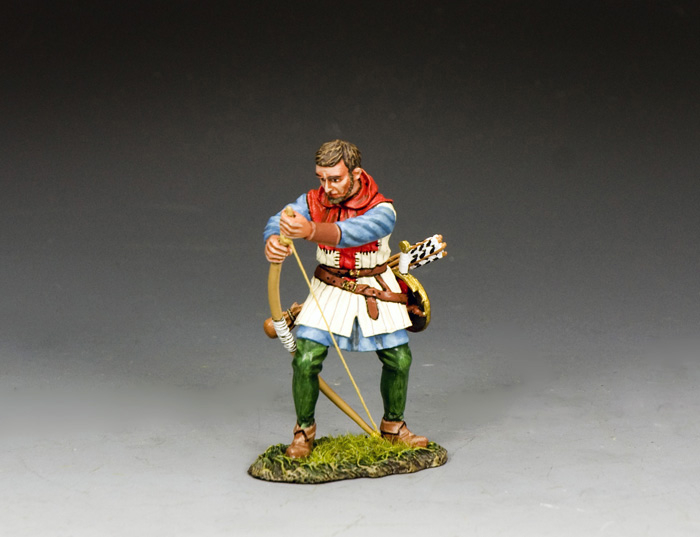 |
| MK240 “English Archer Taking Aim” (B) For those collectors who like to build up line of Archers in action here in the same figure as MK232 with some colour variations in his dress. |
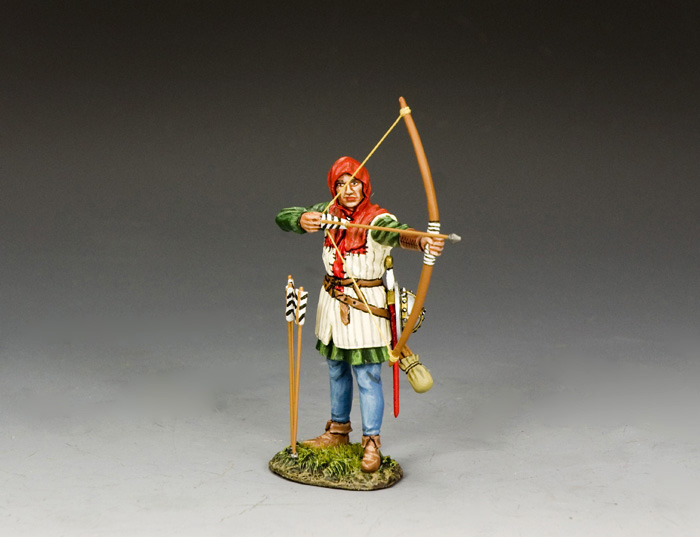 |
| MK241 “English Archer Letting Loose” (B) The same figure as MK233 but with alternative colour variations. |
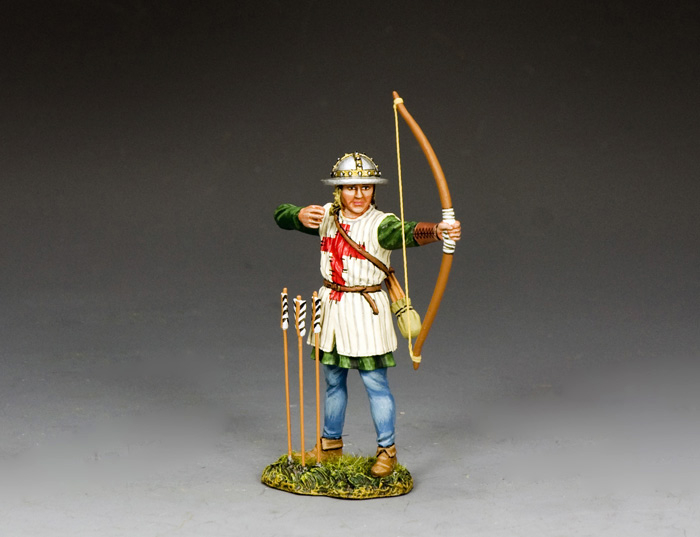 |
| MK242 “English Archer Firing Upwards” (B) The same cast figure as MK234 but again with colour variations. |
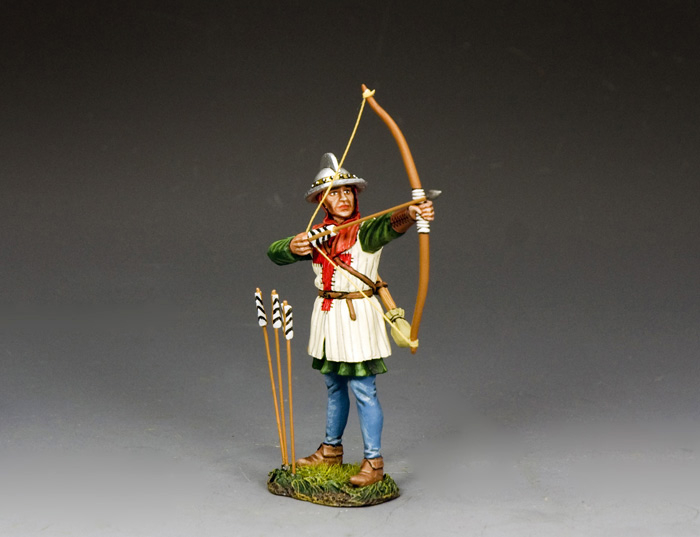 |
| MK243 “English Archer Kneeling Ready” (B) As MK235 but with colour variations. |
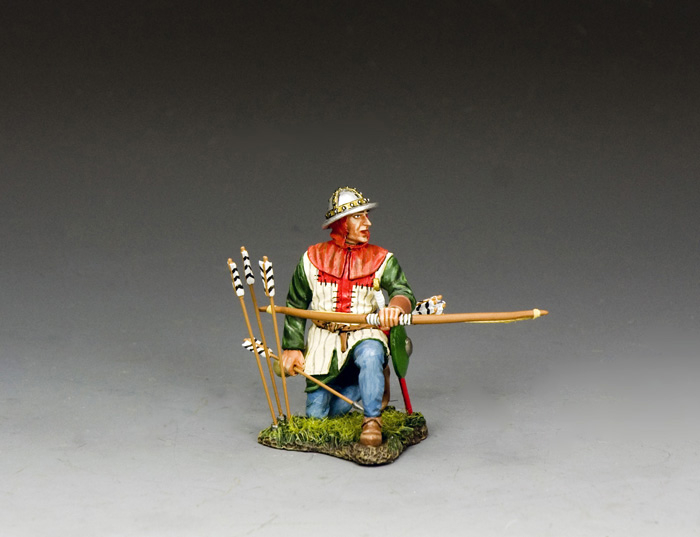 |
| MK244 “English Archer Stringing His Longbow”(B) As MK236 with some colour variations and different hair colouring. |
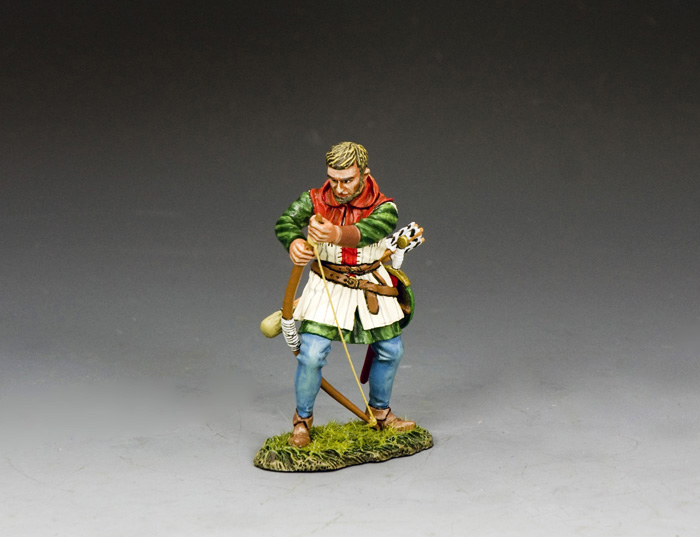 |
| MK-S06 “The Combines English Archers Set” All FIVE English Longbowmen at a very special combined price! |
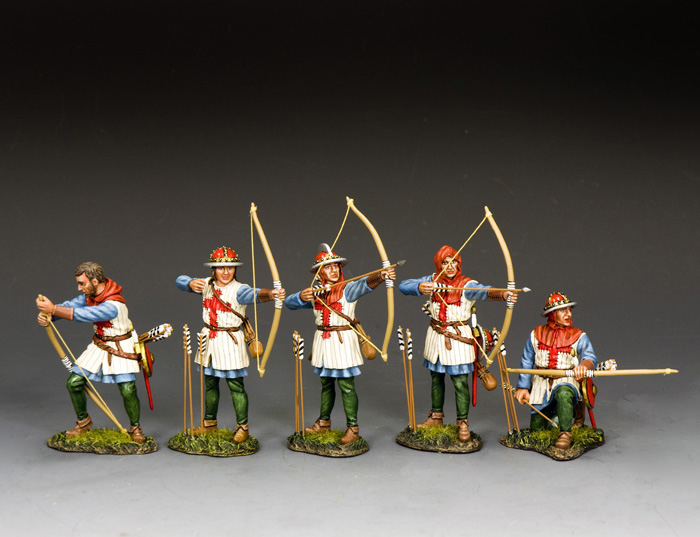 |
| MK-S07 “The Alternative Combined English Archers Set” As above and with the same great value! |
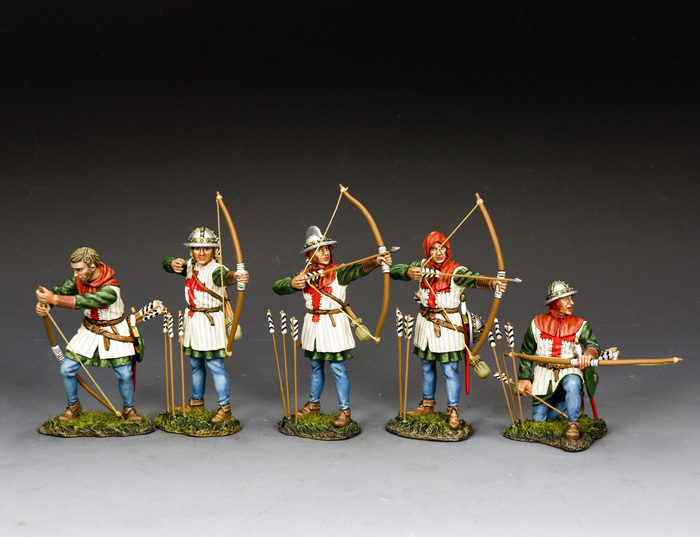 |
AVAILABLE: Mid August
C. “THE ROMAN TRIUMPH”
‘The Roman Triumph’ (in latin ‘Triumphus’), was a civil ceremony and religious rite of Ancient Rome held to publicly celebrate and sanctify the success of a military commander who had led Rome’s forces to victory in the service of the State or, in some historical traditions, one who had successfully completed a foreign war.On the day of the ‘Triumph’ the victor would lead a magnificent parade through The streets of the ancient city accompanied by his army, defeated captives and the ‘spoils of war’ taken from the vanquished.
Thousands of victorious soldiers would take part followed by hundreds of their sullen and dejected prisoners all of them cheered by and jeered at along the route by hundreds of thousands of Rome’s jupilant citizens.
After the day-long parade and the sacrifices made at the Temple of Jupiter (and for several days afterwards) spectacular games and entertainments would be held to placate and please the Roman masses.
Here are the first three releases of what will be a spectacular and colourful ‘TRIUMPH’ when complete.

| ROM065 “The Mounted Roman General” Even the most successful of Rome’s heroes required a number of senior subordinates to fulfill their orders and oversee the troops on parade. This senior officer turns in the saddle to watch over the progress of the Triumph. |
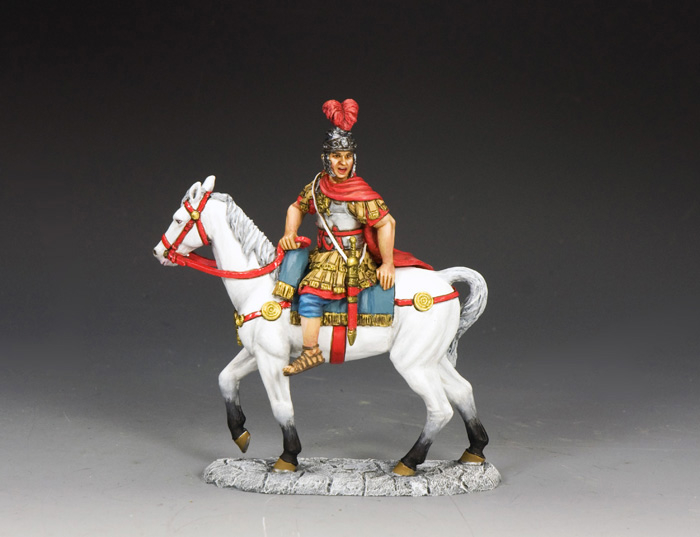 |
| ROM067 “The Lictors” (Set of 4) Among the leading elements of any triumph were ‘The Lictors’ in their blood-red robes, their ‘fasces’ gathered in tight bundles and held by blood-red ribbons. ‘Fasces’ is a bound bundle of wooden rods that includes an axe with its blade emerging. It symbolized a Roman Emperor’s power to both punish and protect his subjects. Many centuries later, the ancient Roman symbol of the ‘Fasces’ would become the foremost symbol of the Fascist Regime of Italy’s dictator Benito Mussolini and would feature on flags, statues, badges and medals. |
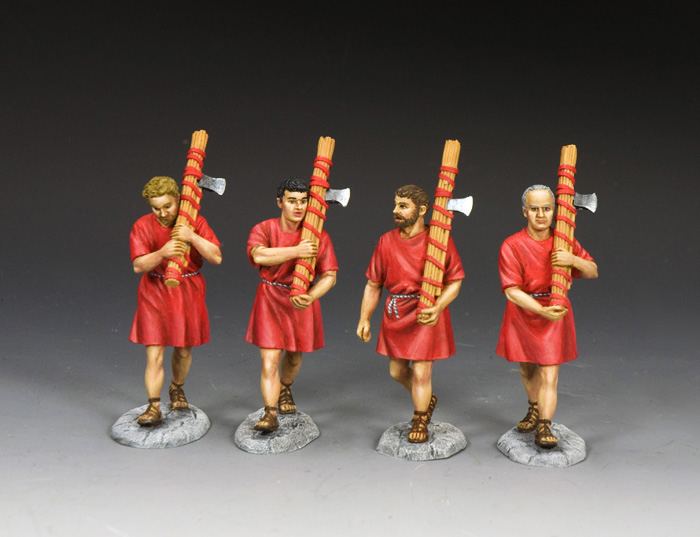 |
| ROM072 “The Trumpeters” (Set of 4) The Roman Legions employed a number of trumpeters called ‘tubae’ and played by selected soldier/ musicians to signal particular troop movements in battle such as ‘advance, attack and retreat’ as well as at different times when guards in camp should mount, sleep or change posts. 36-38 ‘Tubicenes’ (soldier/players) would be assigned to each Legion. These early military musicians would also take part in the ‘Triumphs’ with some or indeed all of the Legion’s complement marching in the parade on those days. Here are our set of 4. |
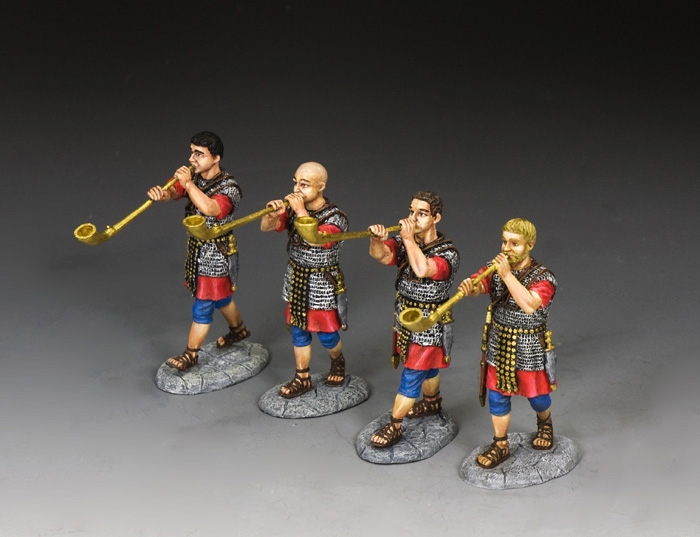 |
D. ‘A Little Touch of Vietnam’
When we announced the retirement of the VN109 ‘Marines On Patrol’ 3-figure set we had more than a few requests and suggestions that we retain one particular member of the patrol as a ‘Single Figure’ reminder of that set.The selected / chosen ‘survivor’ was the walking ‘Grunt’ adjusting his neck towel with one hand as he cradled his M16 in the other.
Well, whenever possible, we try to please our collectors and so… here he is… with the same, sweaty old towel but a brand-new code number…
| VN190 “The Walking Grunt” During the Vietnam War most U.S. soldiers and marines operating in the field carried a U.S. military issue ‘Neck Towel’ for many practical reasons: 1. For cooling and sweat absorption:The tropical climate of Vietnam was hot, stick and humid leading ‘Grunts’ to sweat profusely. These little neck towels were used to wipe away sweat and help keep the wearer a fraction cooler. 2. Dust and debris protection: The dusty and sandy environment of some parts of Vietnam meant that troops’ faces and necks were often exposed to airborne particulates. These little towels could be used to cover the neck and lower face, protecting them from dust and debris. 3. Improvised First Aid: The neck towel could also be utilized as an improvised bandage or field dressing to treat minor wounds and injuries when more formal medical supplies were unavailable. The humble ‘Neck Towel’ served as one of the most useful, versatile and practical accessories that helped many individual soldiers and marines cope with the often demanding environmental and battlefield conditions faced during the Vietnam War. |
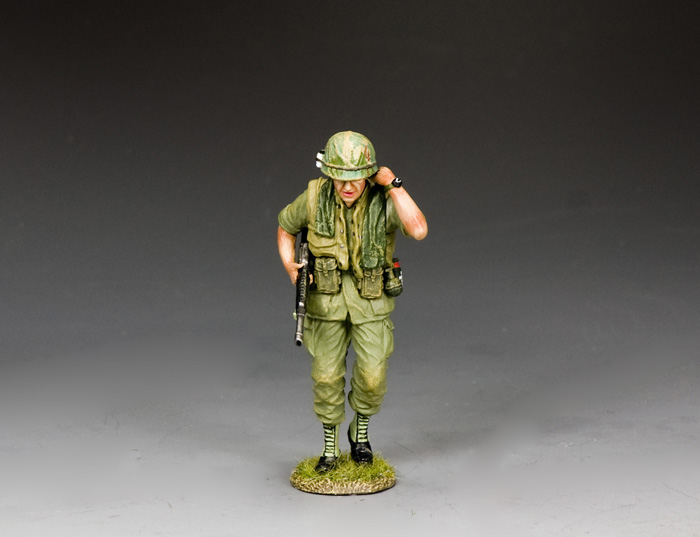 |
AVAILABLE: Early August
2. BEING RETIRED
| JN049X A Rare Surrender | 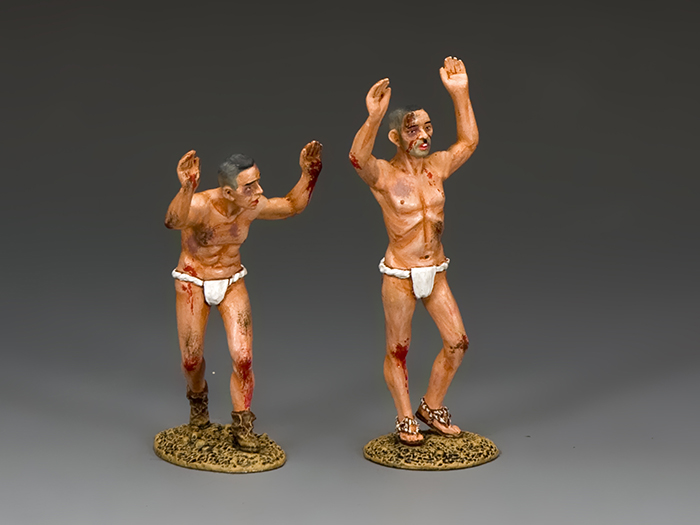 |
| PnM071 Queen Henrietta Maria | 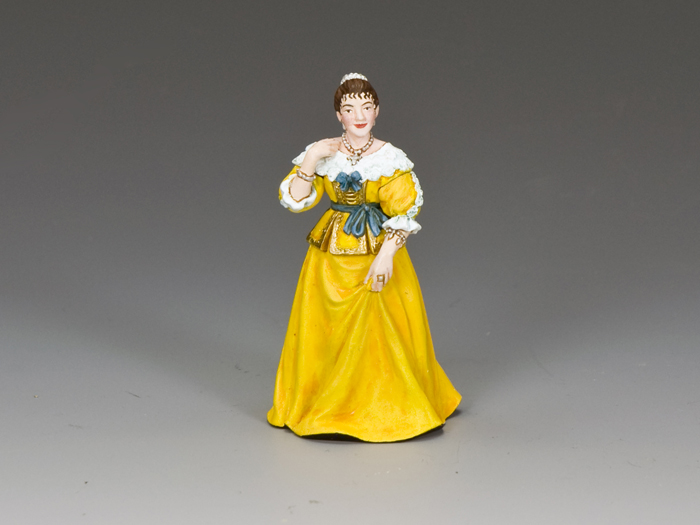 |
| USMC011 Marine Flame Thrower | 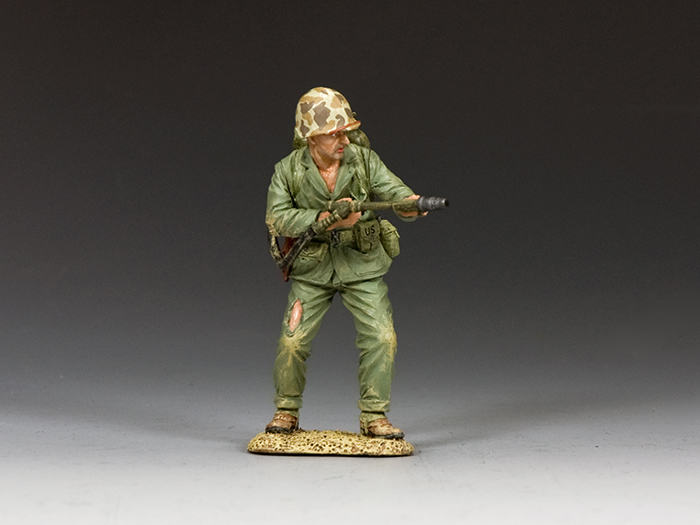 |
| VN012 Marine Lying Prone Firing | 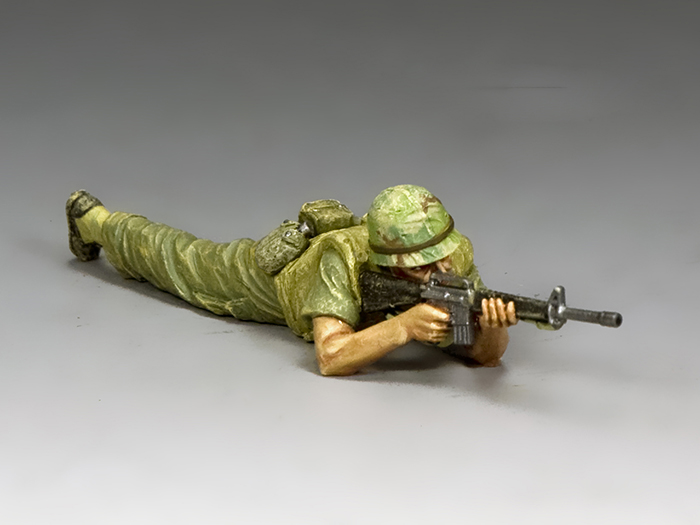 |
| VN030 Australian Patrol Section | 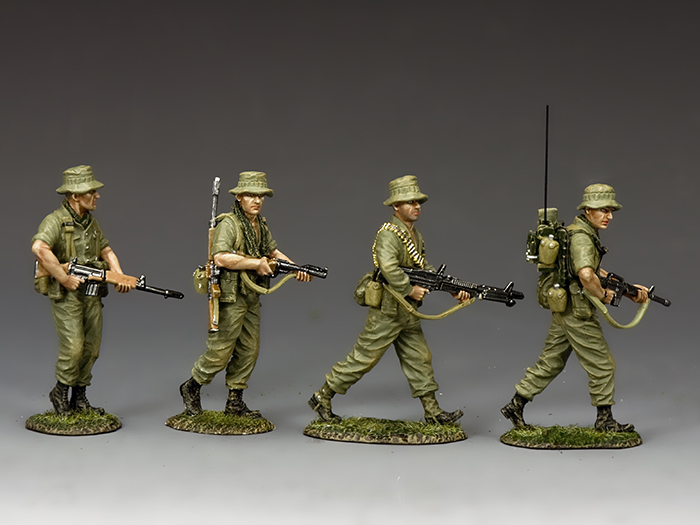 |
| VN085 Vietnam Flower Girl | 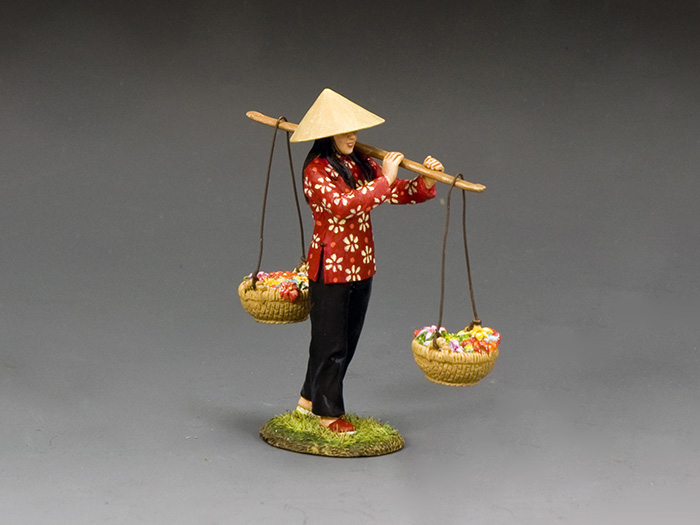 |
| VN088 The Viet Cong Mortar Set | 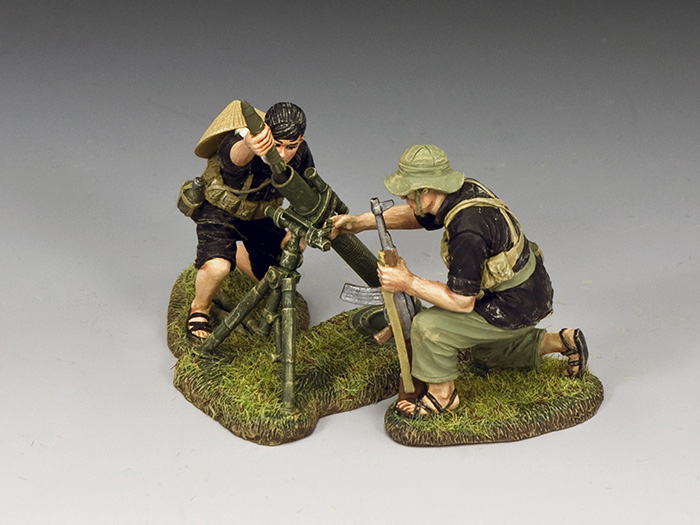 |
| VN095 S.F. Three Man Patrol | 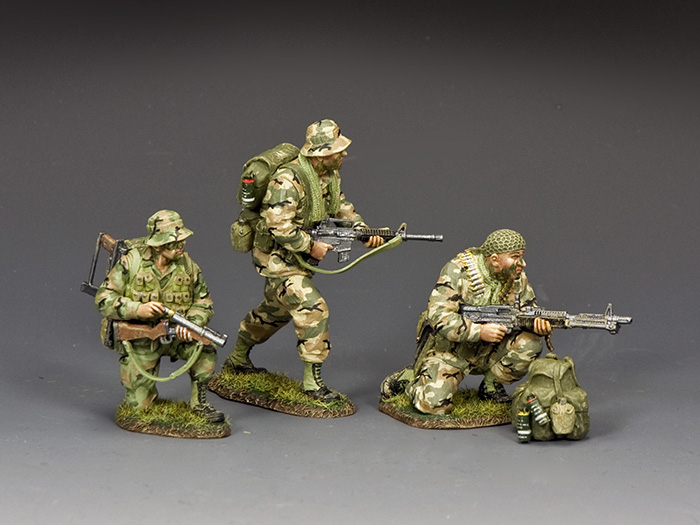 |
| VN110 On Patrol | 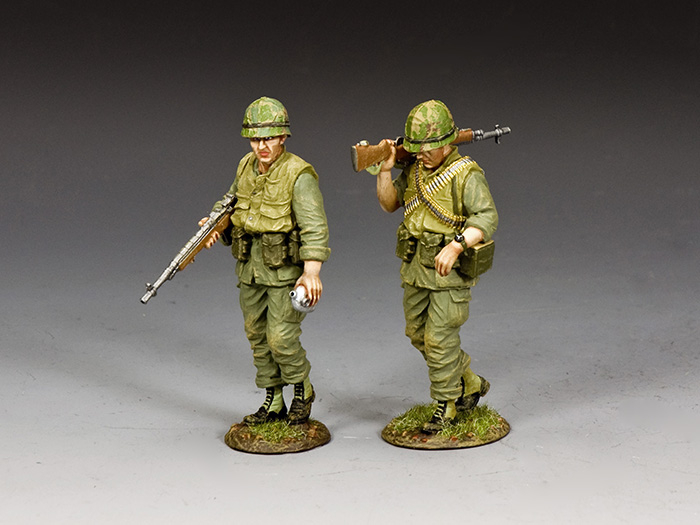 |
| WS353 Sky-Watching Panzer Crewman | 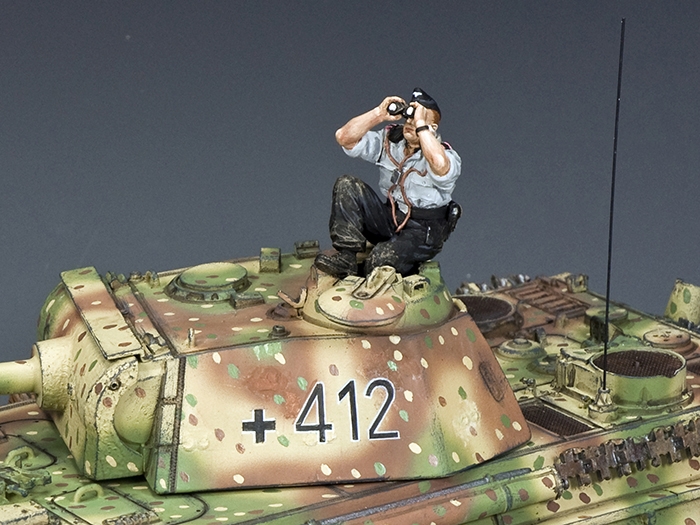 |
And that my friends is August for you…
All the very best and happy collecting!
Andy C. Neilson
Co-founder& Creative Director
King & Country Ltd.
All the very best and happy collecting!
Andy C. Neilson
Co-founder& Creative Director
King & Country Ltd.
| Older Dispatches |
| 2024 May 2024 June 2024 July |

